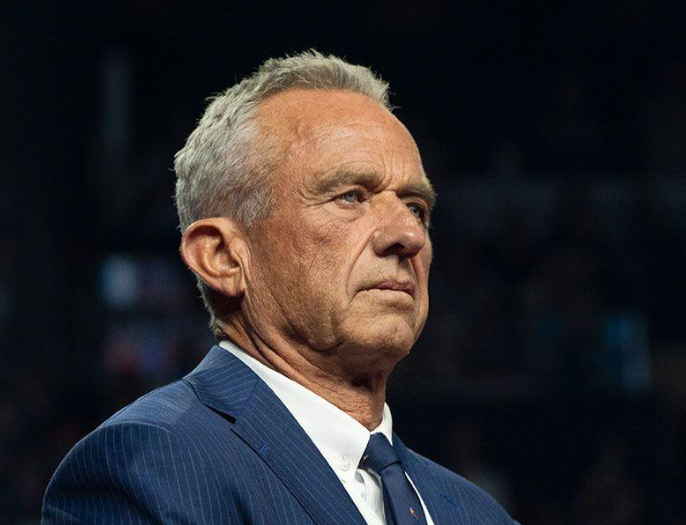Trump Picks RFK Jr. as Health Secretary: What can the MedTech industry expect?

According to the Wall Street Journal, President-elect Donald Trump is planning to nominate environmental lawyer Robert F. Kennedy Jr. to serve as Health and Human Services secretary. Kennedy’s nomination was not a surprise. Last month, Kennedy said Trump had promised him control of the department and its many subagencies, which include the Centers for Disease Control and Prevention (CDC), the Food and Drug Administration (FDA), the National Institutes of Health (NIH), the Centers for Medicare and Medicaid (CMS), and others. Trump himself pledged during the campaign to let Kennedy “go wild on health.”
To put things into context, the mission of the U.S. Department of Health and Human Services (HHS) according to it’s website is to enhance the health and well-being of all Americans, by providing for effective health and human services and by fostering sound, sustained advances in the sciences underlying medicine, public health, and social services. FDA is an agency within the Department of Health and Human Services and consists of nine Center-level organizations and thirteen Headquarter (HQ) Offices.
Kennedy’s website, Make America Healthy Again states that Kennedy has spent nearly 40 years fighting corrupt corporations and government agencies. During his tenure at RiverKeeper, he successfully sued dozens of municipalities to force compliance with the Clean Water Act. He won cases against corporate giants, including a suit against General Electric for toxic runoff from its corporate jet hangar and a court order against ExxonMobil mandating they clean up tens of millions of gallons of spilled oil in Brooklyn, NY. As of Dec 2022, the Monsanto lawsuits to which Kennedy has devoted much of the past decade have yielded $11 Billion for farmers, migrant workers, day laborers, and families exposed to the pesticide RoundUp.
Targeting Pharma
According to Make America Healthy Again, Kennedy sees Big Pharma and Big Agriculture having an undue influence on what Americans eat and how they manage their health over time. Kennedy’s nomination is certain to be opposed by the pharmaceutical lobby in Washington, which relies on the predictability of FDA’s science-based rules to bring new medicines to market.
Kennedy is especially focused on putting an end to the “revolving door” of employees who have previous history working for pharmaceutical companies or leave government service to work for that industry. He said he wants to fire 600 employees at the National Institutes of Health, which oversees vaccine research, and replace them with 600 new employees. Many of the scientists and researchers who work at the NIH are not political appointees, which makes firing them abruptly more difficult.
Kennedy has suggested barring drugmakers from advertising on TV, a multibillion-dollar enterprise that accounts for most of the industry’s marketing dollars. He’s also proposed eliminating fees that drugmakers pay the FDA to review their products, allowing the agency to hire extra scientists to speed up their work. Replacing those funds would require billions in new appropriations from the federal budget.
If approved, what can the MedTech expect from Kennedy?
Simply, it is hard to tell. MedTech doesn’t have Kennedy’s target on its back like the pharmaceutical, agriculture and food processing industries do. He has not called out the medical device industry in any public statement. However, Kennedy has promised to take a serious look at those who work for HHS and its agencies, including the Food and Drug Administration, the National Institutes of Health and the Centers for Disease Control and Prevention.
MedTech might be guilty by association to Pharma. If Kennedy is approved, there will be major changes at FDA. MedTech will feel the repercussions of any FDA shake up or reorganization that would include CDRH. The approval process for pharmaceuticals will change and one can speculate that the 510(k) process of medical device technology approval might as well.
AdvaMed issued this statement: “Medtech is the backbone of our health care system and is largely responsible for the incredible innovations that are transforming patient care. Of course, there are even more exciting innovations in our future that will save and improve millions of lives. But in order for medical innovation to thrive, it is essential that the public policy environment support innovation throughout the medtech ecosystem. We look forward to working with the Trump administration and the new Congress to ensure that the regulatory and policy environments keep pace with these advances and the patients who need them.”
It remains to be seen what impact Kennedy’s proposals will have on the MedTech but they bear little resemblance to those of prior Republican administrations, which have typically favored cutting regulations and increasing the speed of approvals.